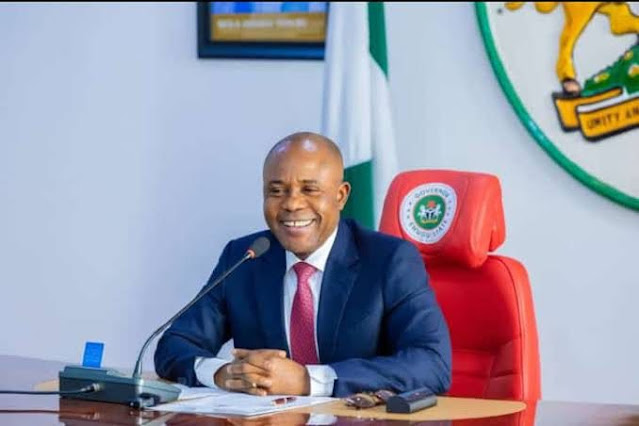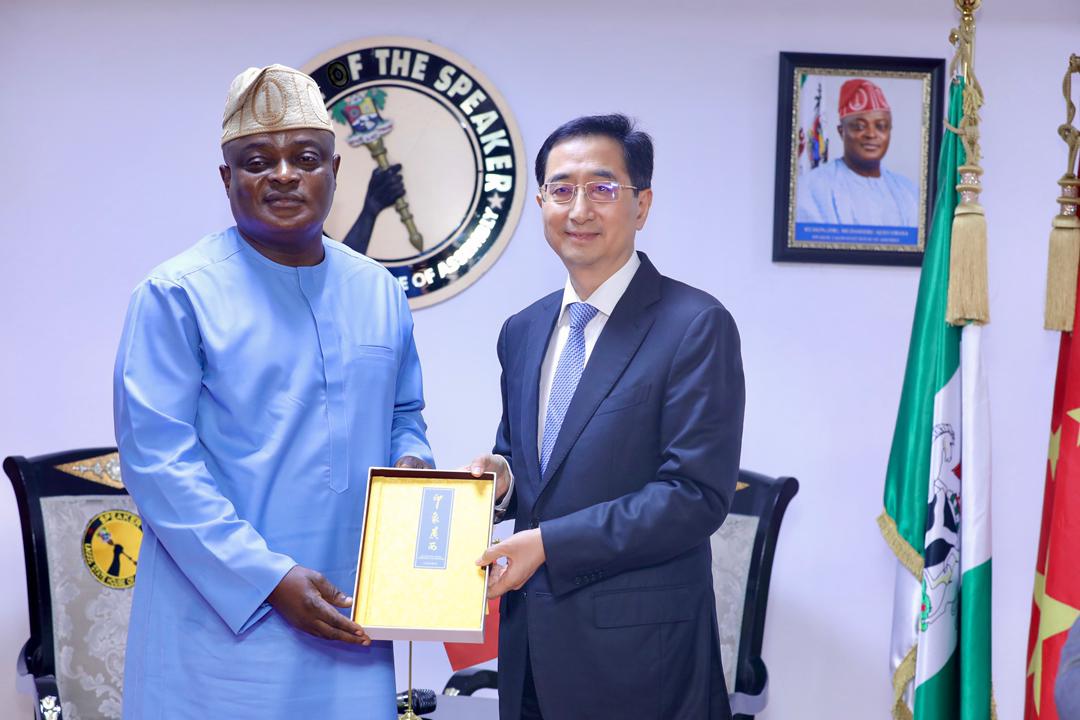On Monday, August 25, 2025, Enugu State Governor Peter Mbah delivered a compelling message to investors, assuring them of robust returns on their investments due to the favorable business environment his administration has meticulously cultivated across the state. The occasion was the grand unveiling of the multi-million naira Priceless Stores and Flamingo Restaurant, a landmark project in Enugu that symbolizes the growing confidence of the business community in the state’s economic prospects. Governor Mbah’s remarks underscored his administration’s ambitious vision to transform Enugu into Nigeria’s top investment destination, emphasizing policies that prioritize profitability, security, and ease of doing business. This report provides an in-depth analysis of the event, the governor’s economic agenda, the significance of the new business venture, and the broader implications for Enugu State’s economic transformation.
A Vision for Economic Transformation
Governor Peter Mbah’s administration, since assuming office, has been driven by a clear and ambitious goal: to position Enugu State as a leading hub for investment and economic growth in Nigeria. Enugu, historically known as the “Coal City” due to its rich coal deposits, has long been a significant player in Nigeria’s socio-economic landscape. However, in recent decades, the state has faced challenges such as unemployment, infrastructure deficits, and limited industrial growth, which have hindered its full economic potential. Mbah’s administration has sought to reverse these trends through a series of strategic policies aimed at creating an enabling environment for businesses and investors.
The unveiling of Priceless Stores and Flamingo Restaurant marks a significant milestone in this journey. The multi-million naira project, located in the heart of Enugu, represents a tangible manifestation of the governor’s vision. During his speech at the event, Mbah highlighted the deliberate efforts of his administration to create a business-friendly ecosystem that attracts both local and foreign investors. “Businesses do not just follow mission or vision statements. They go to where they are assured of returns and protection of their investment,” he declared, pointing to the new venture as evidence of the confidence that investors have in Enugu’s economic prospects.
Mbah’s assurance to investors is grounded in a series of reforms and initiatives designed to enhance the ease of doing business in Enugu. These include improvements in infrastructure, streamlined regulatory processes, enhanced security measures, and targeted incentives for businesses. The governor emphasized that the progress recorded so far—evidenced by projects like Priceless Stores and Flamingo Restaurant—is a testament to the effectiveness of these policies. “What we are witnessing today is a clear reflection of the confidence in the enabling environment we have created,” he said, underscoring the tangible results of his administration’s efforts.
The Priceless Stores and Flamingo Restaurant: A Symbol of Progress
The unveiling of Priceless Stores and Flamingo Restaurant is more than just the opening of a new commercial establishment; it is a symbol of Enugu’s economic resurgence and a beacon of opportunity for investors. The multi-million naira project, spearheaded by Dr. Austin Njoko, Chief Executive Officer of the venture, combines a retail store offering quality products with a high-end restaurant known for its unique culinary offerings. The establishment aims to set a new standard in customer service, product quality, and competitive pricing, positioning itself as a premier destination for shoppers and diners in Enugu.
Dr. Njoko, speaking at the unveiling, expressed gratitude to the Mbah administration for its unwavering support and foresight. He highlighted the unique features of the new outlet, which include a diverse range of high-quality products, exceptional customer service, and a dining experience that blends local and international cuisines. “This venture is designed to meet the needs of Enugu’s growing middle class while creating a welcoming environment for all,” Njoko said. He also emphasized the project’s potential to create employment opportunities for the youth, addressing one of the state’s most pressing challenges—unemployment.
The establishment of Priceless Stores and Flamingo Restaurant is expected to have a ripple effect on Enugu’s economy. By providing jobs for young people, the project contributes to reducing unemployment and empowering the next generation of Enugu’s workforce. Additionally, the venture is likely to stimulate local economic activity by sourcing products and services from suppliers within the state, fostering a sense of economic self-reliance. The restaurant, with its focus on quality and innovation, is also poised to attract tourists and visitors, further boosting Enugu’s profile as a destination for leisure and commerce.
Enugu’s Business-Friendly Environment: Policies and Initiatives
Governor Mbah’s assurance of strong returns for investors is not mere rhetoric; it is backed by a series of concrete policies and initiatives designed to make Enugu a magnet for business. Central to these efforts is the state’s focus on improving the ease of doing business, a critical factor in attracting investment. The Mbah administration has streamlined regulatory processes, reduced bureaucratic hurdles, and introduced digital platforms to facilitate business registration and licensing. These reforms aim to make it easier for entrepreneurs and investors to set up and operate businesses in Enugu.
Security is another cornerstone of the administration’s strategy. Recognizing that investors prioritize safety and stability, Mbah’s government has invested heavily in enhancing security across the state. This includes strengthening the capacity of local security agencies, deploying technology for surveillance and crime prevention, and fostering community-based security initiatives. By creating a secure environment, the administration seeks to assure investors that their assets and operations are protected from risks such as crime or unrest.
Infrastructure development is also a key priority. Enugu has seen significant investments in road networks, power supply, and water systems, all of which are critical to supporting businesses. The state government has partnered with private sector players to develop industrial parks and economic zones, providing investors with access to modern facilities and reliable utilities. These infrastructure improvements not only benefit large-scale projects like Priceless Stores and Flamingo Restaurant but also create opportunities for small and medium-sized enterprises (SMEs), which form the backbone of Enugu’s economy.
The Mbah administration has also introduced targeted incentives to attract investors. These include tax breaks, subsidies for critical sectors, and support for businesses that create jobs or contribute to sustainable development. By aligning its policies with the needs of investors, the state government is positioning Enugu as a competitive destination in Nigeria’s increasingly dynamic economic landscape.
The Broader Economic Context: Enugu’s Role in Nigeria
Enugu State’s economic transformation must be understood within the broader context of Nigeria’s economic challenges and opportunities. Nigeria, Africa’s most populous nation and largest economy, faces significant hurdles, including high unemployment, inflation, and infrastructural deficits. However, the country also boasts immense potential, with a young and dynamic population, abundant natural resources, and a growing consumer market. States like Enugu, with their strategic location and rich cultural heritage, are well-positioned to capitalize on these opportunities.
Enugu’s emergence as an investment hub is particularly significant given Nigeria’s push for economic diversification. The country has historically relied heavily on oil revenues, but fluctuating global oil prices and the need for sustainable growth have prompted a shift toward non-oil sectors such as agriculture, manufacturing, and services. Enugu, with its fertile lands, burgeoning industrial base, and vibrant commercial sector, is poised to play a leading role in this diversification effort.
The retail and hospitality sectors, exemplified by projects like Priceless Stores and Flamingo Restaurant, are critical components of this strategy. These sectors not only create jobs but also drive consumer spending, which is a key driver of economic growth. By fostering the growth of such businesses, Enugu is contributing to Nigeria’s broader goal of building a more resilient and diversified economy.
The Impact of Priceless Stores and Flamingo Restaurant
The unveiling of Priceless Stores and Flamingo Restaurant is a microcosm of the broader economic transformation taking place in Enugu. The project, with its focus on quality, innovation, and customer satisfaction, reflects the kind of businesses that Mbah’s administration seeks to attract. By combining retail and hospitality, the venture caters to a diverse customer base, from local residents seeking affordable, high-quality products to tourists looking for a unique dining experience.
The employment opportunities created by the project are particularly significant in a state where youth unemployment remains a pressing challenge. Nigeria’s youth unemployment rate, which hovers around 40%, is a major driver of social and economic instability. By creating jobs for young people, Priceless Stores and Flamingo Restaurant contribute to addressing this issue, empowering youth and fostering a sense of economic inclusion. Dr. Njoko’s emphasis on job creation underscores the project’s social impact, aligning with the state government’s broader goal of reducing poverty and inequality.
The venture also has the potential to stimulate ancillary businesses in Enugu. For example, local farmers and suppliers may benefit from increased demand for fresh produce and other goods, while service providers such as logistics companies and marketers may see new opportunities. This multiplier effect is a key driver of economic growth, as it creates a virtuous cycle of investment, job creation, and consumer spending.
Challenges and Opportunities
While the unveiling of Priceless Stores and Flamingo Restaurant is a cause for optimism, Enugu’s journey to becoming Nigeria’s top investment destination is not without challenges. Infrastructure deficits, particularly in power supply, remain a significant hurdle for businesses in Nigeria. Although the Mbah administration has made strides in improving electricity access, the state still relies heavily on the national grid, which is notoriously unreliable. Addressing this issue will require continued investment in renewable energy and off-grid solutions to ensure that businesses can operate without disruptions.
Security, while improved, remains a concern in some parts of Enugu. The South-East region of Nigeria, where Enugu is located, has faced challenges related to separatist agitations and occasional violence. The state government’s efforts to strengthen security must be sustained to maintain investor confidence and ensure the safety of businesses and residents.
Access to finance is another critical issue. Many SMEs in Enugu struggle to secure the capital needed to start or expand their operations. The state government can address this by partnering with financial institutions to provide low-interest loans, grants, and other forms of support for entrepreneurs. Such measures would complement the efforts of large-scale investors like Priceless Stores and Flamingo Restaurant, creating a more inclusive economic ecosystem.
Despite these challenges, the opportunities in Enugu are immense. The state’s strategic location, connecting Nigeria’s South-East, South-South, and North-Central regions, makes it an ideal hub for trade and commerce. Its rich cultural heritage, vibrant tourism sector, and growing urban population further enhance its appeal as an investment destination. By continuing to prioritize policies that foster economic growth, the Mbah administration can build on the momentum generated by projects like Priceless Stores and Flamingo Restaurant.
The Role of Public-Private Partnerships
The success of Priceless Stores and Flamingo Restaurant highlights the importance of public-private partnerships (PPPs) in driving economic development. The Mbah administration’s support for the project, as acknowledged by Dr. Njoko, demonstrates the value of collaboration between the government and the private sector. By providing an enabling environment—through infrastructure, security, and incentives—the state government has created the conditions for businesses like Priceless Stores to thrive.
PPPs are particularly critical in addressing Nigeria’s infrastructure and financing gaps. The private sector brings capital, expertise, and innovation, while the government provides regulatory support and strategic direction. In Enugu, this model has already yielded results, with projects like Priceless Stores and Flamingo Restaurant showcasing the potential of such partnerships to transform the economy.
Moving forward, the Mbah administration can expand its use of PPPs to develop new sectors, such as technology, agriculture, and renewable energy. For example, establishing tech hubs or agribusiness clusters could attract young entrepreneurs and create new opportunities for innovation and growth. By fostering a collaborative ecosystem, Enugu can position itself as a leader in Nigeria’s economic renaissance.
Enugu’s Vision for the Future
Governor Mbah’s vision for Enugu extends beyond individual projects like Priceless Stores and Flamingo Restaurant. His administration aims to create a sustainable, inclusive, and dynamic economy that benefits all residents of the state. This vision is encapsulated in the governor’s commitment to making Enugu Nigeria’s top investment destination, a goal that requires bold leadership, strategic planning, and sustained effort.
Key to this vision is the focus on youth empowerment and job creation. By investing in education, skills development, and entrepreneurship, the state government can equip young people with the tools they need to succeed in a competitive economy. Projects like Priceless Stores and Flamingo Restaurant, which prioritize youth employment, are a step in this direction, but more needs to be done to scale up these efforts.
Sustainability is another critical component of Enugu’s economic agenda. The state government has emphasized the importance of environmentally friendly policies and practices, recognizing that long-term growth depends on preserving natural resources and mitigating climate change. Businesses like Priceless Stores and Flamingo Restaurant can contribute to this goal by adopting sustainable practices, such as energy-efficient operations and responsible sourcing.
Conclusion
The unveiling of Priceless Stores and Flamingo Restaurant on August 25, 2025, marks a significant milestone in Enugu State’s journey to becoming Nigeria’s premier investment destination. Governor Peter Mbah’s assurance of strong returns for investors, backed by a favorable business environment, reflects the state’s commitment to economic transformation. The project, led by Dr. Austin Njoko, not only showcases Enugu’s potential as a commercial hub but also demonstrates the power of public-private partnerships in driving growth.
By prioritizing policies that enhance the ease of doing business, ensure security, and promote job creation, the Mbah administration is laying the foundation for a prosperous future. The success of Priceless Stores and Flamingo Restaurant is a testament to the confidence that investors have in Enugu’s vision and the tangible results of the government’s reforms. As Enugu continues to attract investment and foster innovation, it is poised to play a leading role in Nigeria’s economic diversification and growth, setting a model for other states to follow.






